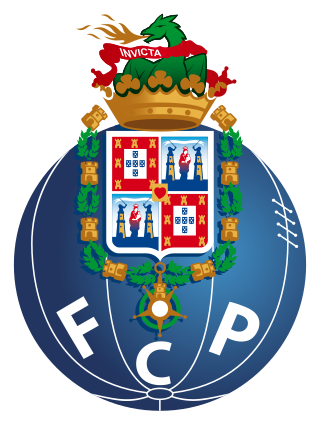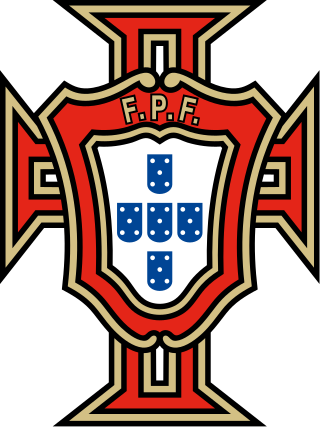
Angola, officially the Republic of Angola, is a country on the west-central coast of Southern Africa. It is the second-largest Lusophone (Portuguese-speaking) country in both total area and population and is the seventh-largest country in Africa. It is bordered by Namibia to the south, the Democratic Republic of the Congo to the north, Zambia to the east, and the Atlantic Ocean to the west. Angola has an exclave province, the province of Cabinda, that borders the Republic of the Congo and the Democratic Republic of the Congo. The capital and most populous city is Luanda.

Brazil, officially the Federative Republic of Brazil, is the largest and easternmost country in South America and in Latin America. Brazil is the world's fifth-largest country by area and the seventh most populous. Its capital is Brasília, and its most populous city is São Paulo. The federation is composed of the union of the 26 states and the Federal District. It is the only country in the Americas to have Portuguese as an official language. It is one of the most multicultural and ethnically diverse nations, due to over a century of mass immigration from around the world, and the most populous Roman Catholic-majority country.

Portugal, officially the Portuguese Republic, is a country located on the Iberian Peninsula, in Southwestern Europe, and whose territory also includes the Macaronesian archipelagos of the Azores and Madeira. It features the westernmost point in continental Europe, its mainland west and south border with the North Atlantic Ocean and in the north and east, the Portugal-Spain border constitutes the longest uninterrupted border-line in the European Union. Its archipelagos form two autonomous regions with their own regional governments. In the mainland, Alentejo region occupies the biggest area but is one of the regions in Europe with a lower population density. Lisbon is the capital and largest city by population, being also the main spot for tourists alongside Porto and Algarve.

Futebol Clube do Porto, MHIH, OM, commonly known as FC Porto or simply Porto, is a Portuguese professional sports club based in Porto. It is best known for the professional football team playing in the Primeira Liga, the top flight of Portuguese football.

The prime minister of Portugal is the head of government of Portugal. As head of government, the prime minister coordinates the actions of ministers, represents the Government of Portugal to the other bodies of state, is accountable to parliament and keeps the president informed. The prime minister can hold the role of head of government with the portfolio of one or more ministries. As Portugal is a semi-presidential parliamentary republic, the prime minister is the country's leading political figure and de facto chief executive.

The Empire of Brazil was a 19th-century state that broadly comprised the territories which form modern Brazil and Uruguay. Its government was a representative parliamentary constitutional monarchy under the rule of Emperors Pedro I and his son Pedro II. A colony of the Kingdom of Portugal, Brazil became the seat of the Portuguese Empire in 1808, when the Portuguese Prince regent, later King Dom John VI, fled from Napoleon's invasion of Portugal and established himself and his government in the Brazilian city of Rio de Janeiro. John VI later returned to Portugal, leaving his eldest son and heir-apparent, Pedro, to rule the Kingdom of Brazil as regent. On 7 September 1822, Pedro declared the independence of Brazil and, after waging a successful war against his father's kingdom, was acclaimed on 12 October as Pedro I, the first Emperor of Brazil. The new country was huge, sparsely populated and ethnically diverse.

The 2004 UEFA European Football Championship, commonly referred to as Euro 2004, was the 12th edition of the UEFA European Championship, a quadrennial football competition contested by the men's national teams of UEFA member associations. The final tournament was hosted for the first time in Portugal, from 12 June to 4 July 2004. A total of 31 matches were played in ten venues across eight cities – Aveiro, Braga, Coimbra, Guimarães, Faro/Loulé, Leiria, Lisbon, and Porto.

The Socialist Party is a social-democratic political party in Portugal. It was founded on 19 April 1973 in the German city of Bad Münstereifel by militants who were at the time with the Portuguese Socialist Action. The PS is a member of the Socialist International, Progressive Alliance and Party of European Socialists, and has nine members in the European Parliament within the Progressive Alliance of Socialists and Democrats group during the 9th European Parliament. It has been the governing party of Portugal since November 2015, subsequently winning the 2019 and 2022 legislative elections.

The Battle of Diu was a naval battle fought on 3 February 1509 in the Arabian Sea, in the port of Diu, India, between the Portuguese Empire and a joint fleet of the Sultan of Gujarat, the Mamlûk Burji Sultanate of Egypt and the Zamorin of Calicut.

The Portugal national football team has represented Portugal in men's international football competition since 1921. The national team is controlled by the Portuguese Football Federation (FPF), the governing body for football in Portugal. Portugal's home matches are played at various stadiums throughout Portugal, and its primary training ground and technical headquarters, Cidade do Futebol, is located in Oeiras. The head coach of the team is Roberto Martínez, and the captain is Cristiano Ronaldo, who also holds the team records for most caps and most goals.

Sporting Clube de Portugal, otherwise referred to as Sporting CP or simply Sporting, or as Sporting Lisbon in other countries, is a Portuguese sports club based in Lisbon. Having various sports departments and sporting disciplines, it is best known for its men's professional football team playing in the Primeira Liga, the top flight of Portuguese football.

The Iberian Union was the dynastic union of Spain and Portugal, and of their respective colonial empires, that existed between 1580 and 1640 and brought the entire Iberian Peninsula except Andorra, as well as Portuguese and Spanish overseas possessions, under the Spanish Habsburg monarchs Philip II, Philip III, and Philip IV. The union began after the Portuguese crisis of succession and the ensuing War of the Portuguese Succession, and lasted until the Portuguese Restoration War, during which the House of Braganza was established as Portugal's new ruling dynasty with the acclamation of John IV as the new King of Portugal.
The Brazil national under-20 football team, also known as Brazil Sub-20 or Seleção Sub-20, represents Brazil in association football at this age level and is controlled by the Brazilian Football Confederation (CBF).
The 2002–03 Primeira Liga was the 69th edition of top flight of Portuguese football. It started on 25 August 2002 with a match between Varzim and Paços de Ferreira, and ended on 1 June 2003. The league was contested by 18 clubs with Sporting CP as the defending champions.

The Nomenclature of Territorial Units for Statistics (NUTS) is developed by Eurostat, and employed in both Portugal and the entire European Union for statistical purposes. The NUTS branch extends from NUTS1, NUTS2 and NUTS3 regions, with the complementary LAU sub-categorization being used to differentiate the local areas, of trans-national importance.
Events in the year 2002 in Portugal.
The 2002–03 Taça de Portugal was the 63rd edition of the Portuguese football knockout tournament, organized by the Portuguese Football Federation (FPF). The 2002–03 Taça de Portugal began on 8 September 2002. The final was played on 15 June 2003 at the Estádio Nacional.
The 2001–02 Taça de Portugal was the 62nd edition of the Portuguese football knockout tournament, organized by the Portuguese Football Federation (FPF). The 2001–02 Taça de Portugal began on 2 September 2001. The final was played on 12 May 2002 at the Estádio Nacional.

Luís Filipe Madeira Caeiro Figo is a Portuguese former professional footballer who played as a winger for Sporting CP, Barcelona, Real Madrid and Inter Milan. He won 127 caps for the Portugal national team, a one-time record, and is considered one of the greatest players of his generation.















